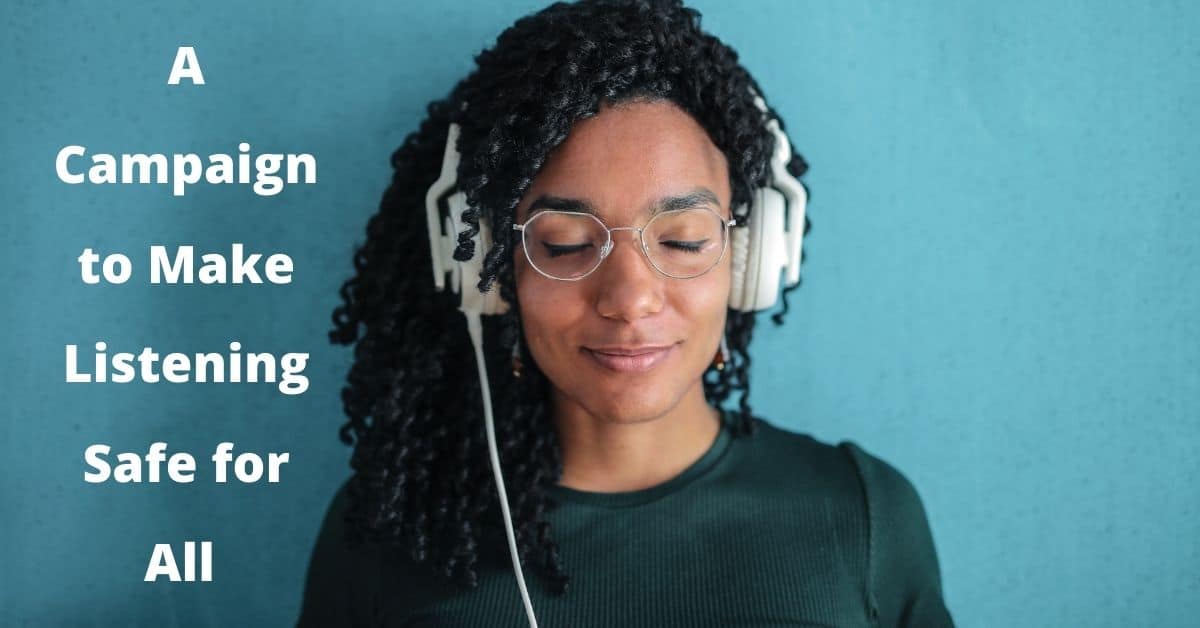Over 1 billion teenagers and young adults around the world are at risk of developing hearing loss according to the World Health Organization (WHO). This increased risk is caused by absorbing loud noise in entertainment venues as well as unsafe use of personal audio devices. For people between the ages of 12-35:
- 50% listen to unsafe levels of through personal audio devices
- 40% are exposed to potentially harmful levels of sound at nightclubs, bars, and sporting events
These statistics highlight the significant health risk people are experiencing. In response, WHO launched Make Listening Safe, a global campaign to bring attention to this growing health risk as well as provide ways people can protect their hearing health.
Understanding Noise Induced Hearing Loss
Hearing loss is one of the most common chronic medical conditions that people experience. According to the National Institute on Deafness and Other Communication Disorders, nearly 1 in 8 people have some degree of hearing loss, amounting to over 40 million people in the U.S.
There are several factors that can cause impaired hearing including: existing medical conditions, genetic history, aging, and environmental exposure to loud noise. Noise induced hearing loss can result from one time or continuous absorption of unsafe levels of sound. Sound is measured in decibels (dB) and noise above 85dB is considered potentially dangerous for hearing. We can easily, and unknowingly, absorb these levels of sound on a regular basis as we navigate various loud environments and/or use devices set on high volume – hand drill, city traffic, construction sites, concerts, and listening to music or podcasts on our smartphones can all be above 85dB.
Absorbing loud noise can damage the hair cells in the inner ear. These hair cells help translate the soundwaves we collect into electrical signals. These signals then travel to the brain where they are processed which is how we are able to make sense of what we hear. The thousands of hair cells in each ear do not regenerate, meaning that any damage is permanent and prevents them from helping the brain convert soundwaves. This makes it more challenging for the brain to process incoming sound, producing noise induced hearing loss.
Impact of Hearing Loss
Hearing loss can profoundly impact all aspects of one’s life. A reduced ability to hear can make it challenging to manage personal and professional responsibilities by:
- Straining Communication: hearing loss produces a variety of symptoms that can be experienced from mild to severe including – tinnitus (ringing or buzzing noise in the ears), sounds are slurred, frequently needing others to repeat themselves, unable to hear in environments with background noise etc. These symptoms can make it incredibly challenging to follow conversations.
- Leading to Social Withdrawal: conversations can require significant energy and work, leaving people with hearing loss feeling drained. This can cause people to avoid conversations and social settings, resulting in spending less time with family and friends as well as doing the things that are enjoyable.
- Declining Overall Health: strained communication and isolation can take a toll on physical and mental health. Withdrawal can contribute to anxiety and depression and leave people with less energy. Additionally, untreated hearing loss can contribute to the development of other medical conditions like dementia.
The best way to reduce your risk of hearing loss is by being proactive about your hearing health which can improve your overall quality of life.
Protect Your Hearing
There are various measures and safety tips that you can practice to make listening safe. This includes:
- Low Volume Settings: when using personal audio devices (smartphone, speaker), maintain normal volume levels. You can always check by using an app!
- Noise Cancelling Headphones: reduce background noise and prevent you from increasing the volume in loud environments.
- Wear Earplugs: and other protective gear (earmuffs, earbuds, headphones) which reduce the amount of loud noise you absorb.
- Listening Breaks: your ears need a break from processing sound so be sure to take listening breaks regularly.
Additionally, it is always a great idea to have your hearing assessed by a hearing healthcare expert. Hearing tests measure your hearing ability in both ears and is an effective way to identify and treat any impairment! Contact us today to schedule an appointment.

